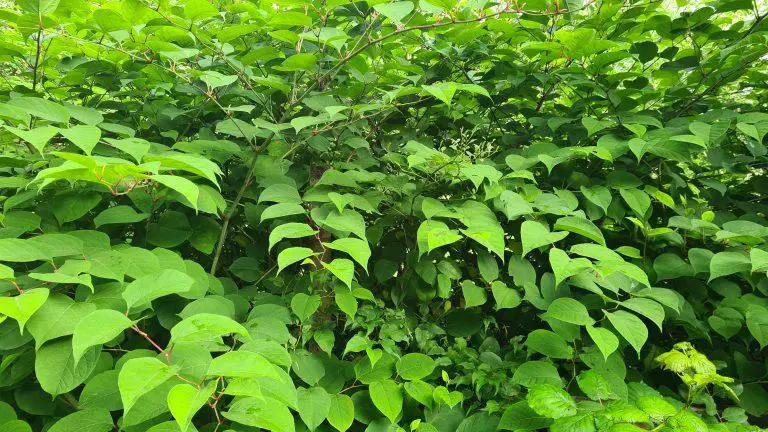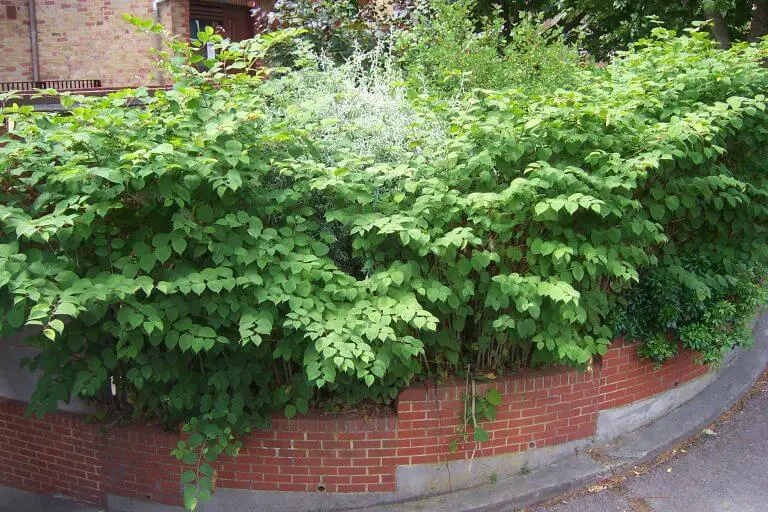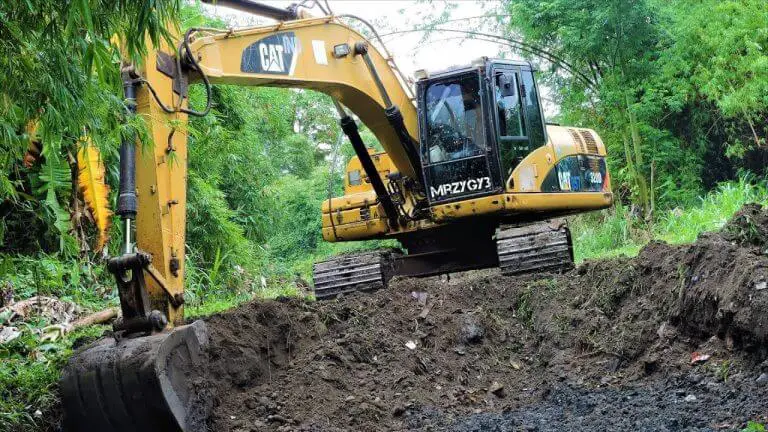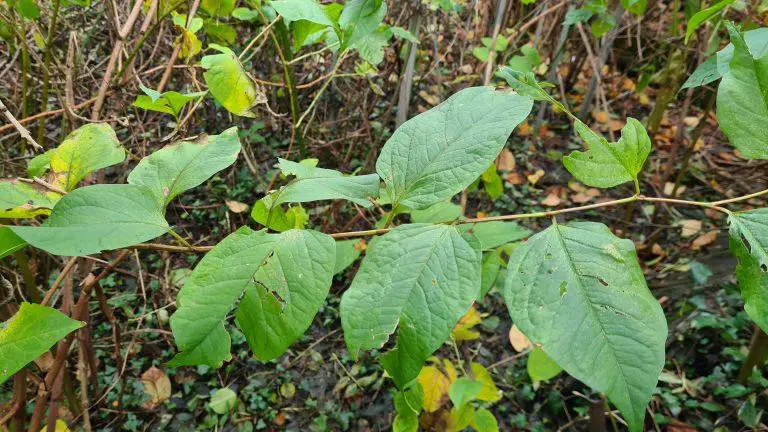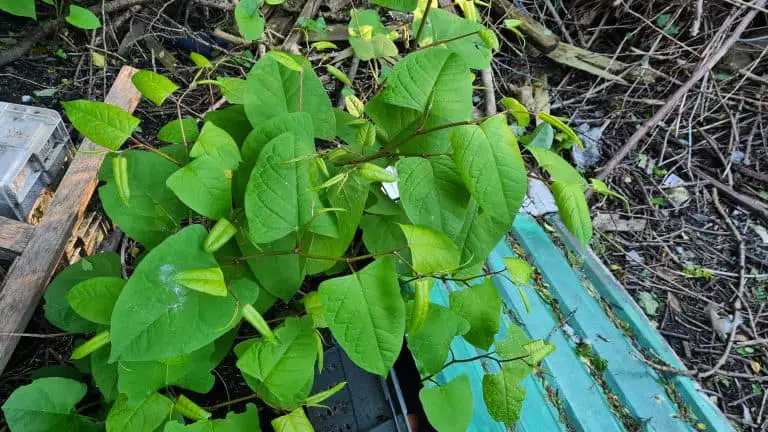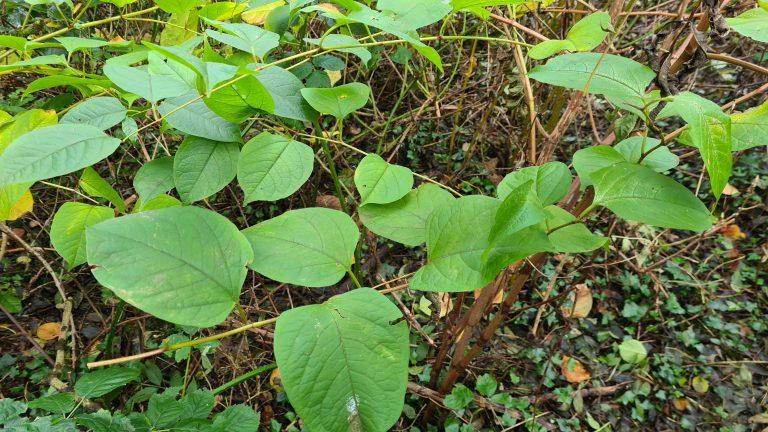Lockdown has given individuals wishing to sell their homes the perfect opportunity to put the finishing touches on their homes. It’s commonly recognised that some minor improvements can increase the marketability of your property, from deep cleaning to re-decorating.
But what’s it lurking at the garden’s bottom? Is it possible that it’s Japanese knotweed? It’s only a few small shoots, so it shouldn’t be an issue, right? Wrong.
Will Japanese Knotweed devalue my house price and impede the sale of the property? This is one of the main questions most homeowners are concerned about when they discover it on their property.
If you are planning to sell your home and you have Japanese knotweed growing on your property, you must declare it. It will very definitely lower the property’s value and, in the worst-case scenario, make it impossible to sell.
So how can it affect my property?
It’s probably no surprise that Japanese knotweed can have a negative impact on house prices. After all, the weed is known for its ability to quickly spread and take over an area, making it difficult – if not impossible – to get rid of. So what happens when knotweed is discovered on a property? Can it really devalue the house or prevent its sale altogether?
The simple answer is yes, Japanese knotweed can definitely have an impact on property values. In fact, it’s not uncommon for the presence of the weed to result in a house being valued at 20% less than it would be without the knotweed. In some cases, the weed has even been known to prevent a property from being sold at all.
If you’re unfortunate enough to have Japanese knotweed on your property, it’s important to take steps to get rid of it as soon as possible. This is not only because of the potential impact on your house value but also because the weed can be harmful to your health and the environment.
So, what exactly is Japanese knotweed, and why is it such a big deal?
Japanese knotweed (Fallopia japonica) is a perennial herb found in Japan. It was introduced to the UK in the 19th century as a decorative plant for vast gardens, but its vitality quickly became obvious. It has spread throughout the UK, colonising river banks, railway lines, abandoned plots, and even making its way into gardens and allotments a century later.
This invasive plant will have an impact on the local ecology wherever it establishes itself. Its highly matted stems can grow to be 3 metres tall, destroying biodiversity by outcompeting all natural species. Its underground rhizome structure progressively expands, taking advantage of any gaps or voids. It can be difficult to regulate once developed, and it will worsen any existing structural weaknesses, such as drains or patios.
Japanese knotweed is thought to pose a substantial danger of harm to buildings within seven metres of the plant’s visible sections in the United Kingdom.
It is not uncommon to observe Japanese knotweed on a property that has grown so much underground that it is now present on neighbouring land as well. Unknowingly, the property owner has committed a crime by permitting the plant to grow on someone else’s property.
UK Law
Why does it have an impact on a property’s sale?
Many home buyers require a mortgage, and many lenders will not lend against a property that has a Japanese knotweed infestation. Those that do should expect to see proof of a complete eradication plan in place, carried out by a licenced Japanese knotweed contractor.
Lenders may view the presence of Japanese knotweed on a property, whether historic or undergoing treatment, as having a negative impact on its value, limiting the amount that buyers can borrow.
Because it is a legal necessity to disclose if the property has, or has previously had, a Japanese knotweed infestation, lying about the situation can result in legal action if the buyer discovers the infestation.
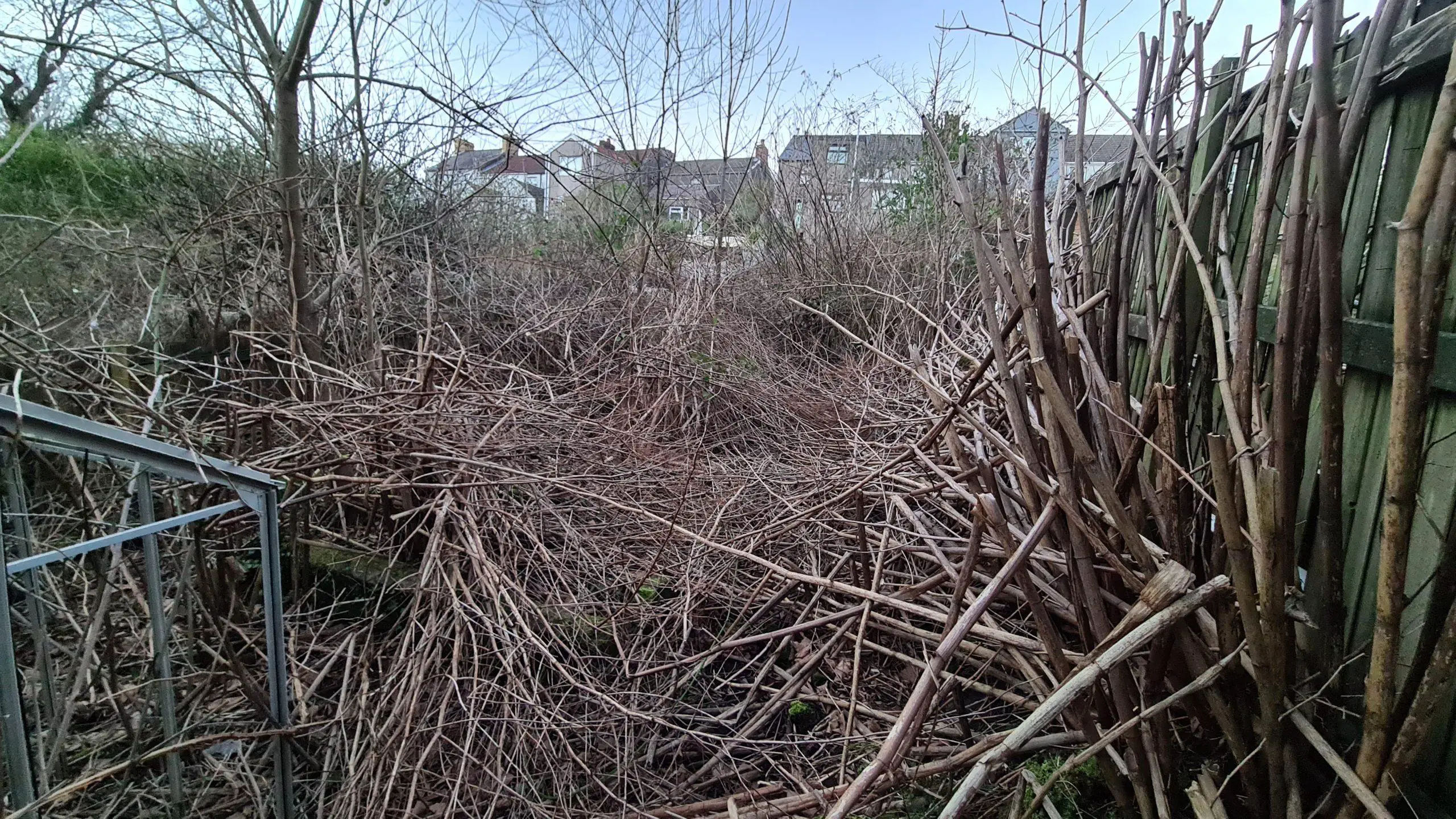
Isn’t it merely a matter of removing Japanese knotweed?
Unfortunately, chopping down Japanese knotweed will just encourage it to grow back faster, making it more difficult and expensive to eradicate. Japanese knotweed should ideally be removed by a professional. Attempting to remove it on your own may spread it further and exacerbate the condition.
Often people think they can deal with Japanese knotweed like any other weed – chop it down and take it to the trash or compost it. This is an absolute no-no! It’s not only a criminal offence, but it also has the potential to propagate the plant rapidly!
Japanese knotweed is also a controlled waste, which means it can only be disposed of by a licenced waste carrier at a licenced landfill site.
Depending on your timeframe, budget, and the amount of the infestation, there are numerous treatment methods for Japanese knotweed. Excavation entails digging up the entire area, which can be costly and inconvenient, but it can get rid of the plant in a matter of days. Chemical therapy is usually less expensive, but it takes a long time to finish.
So it’s not all doom and gloom! If Japanese knotweed is declared and an eradication strategy is in place in the form of a managed treatment plan, it won’t prevent you from selling your home.
In conclusion
Can Japanese knotweed devalue house prices and impede the sale?
The short answer is yes, so taking action is a necessary requirement.
For more help and advice reach out to your local professional contractor as most of them provide a free survey and the necessary advice to help you determine the best course of action.
Want to know more about getting a Survey?
Knotweed Removal aims to provide the most up-to-date information, help and advice for YOU to make informed decisions. If you are unsure or uncertain about how to proceed, please reach out to us and we will gladly come back and advise you as best we can.
Governmental advice can be found here and the UK law covering the removal of Japanese Knotweed as stated under the Wildlife and Countryside Act 1981 can be found here.
The best means to contact us is via our email – hello@knotweedremoval.tips
Do not forget we have a library of blogs covering many areas relevant to Japanese Knotweed, our free downloadable How-to Guides and Product Reviews on the latest methods being employed to eradicate or remove Japanese Knotweed.
Knotweed Removal, UK

